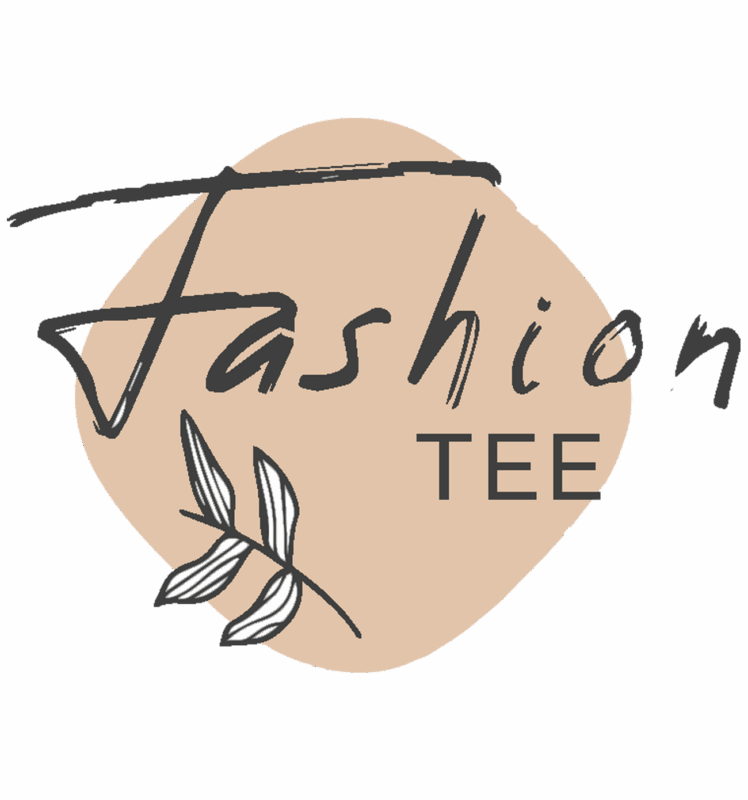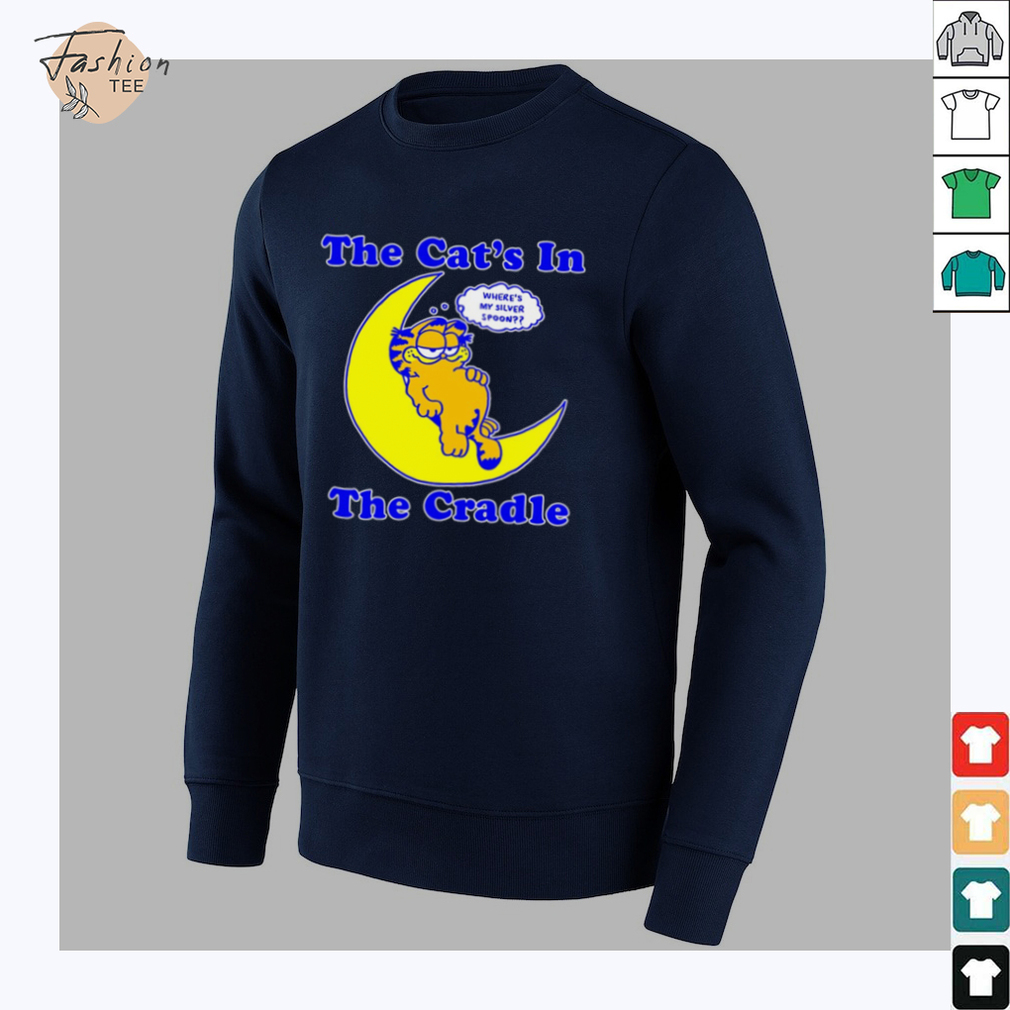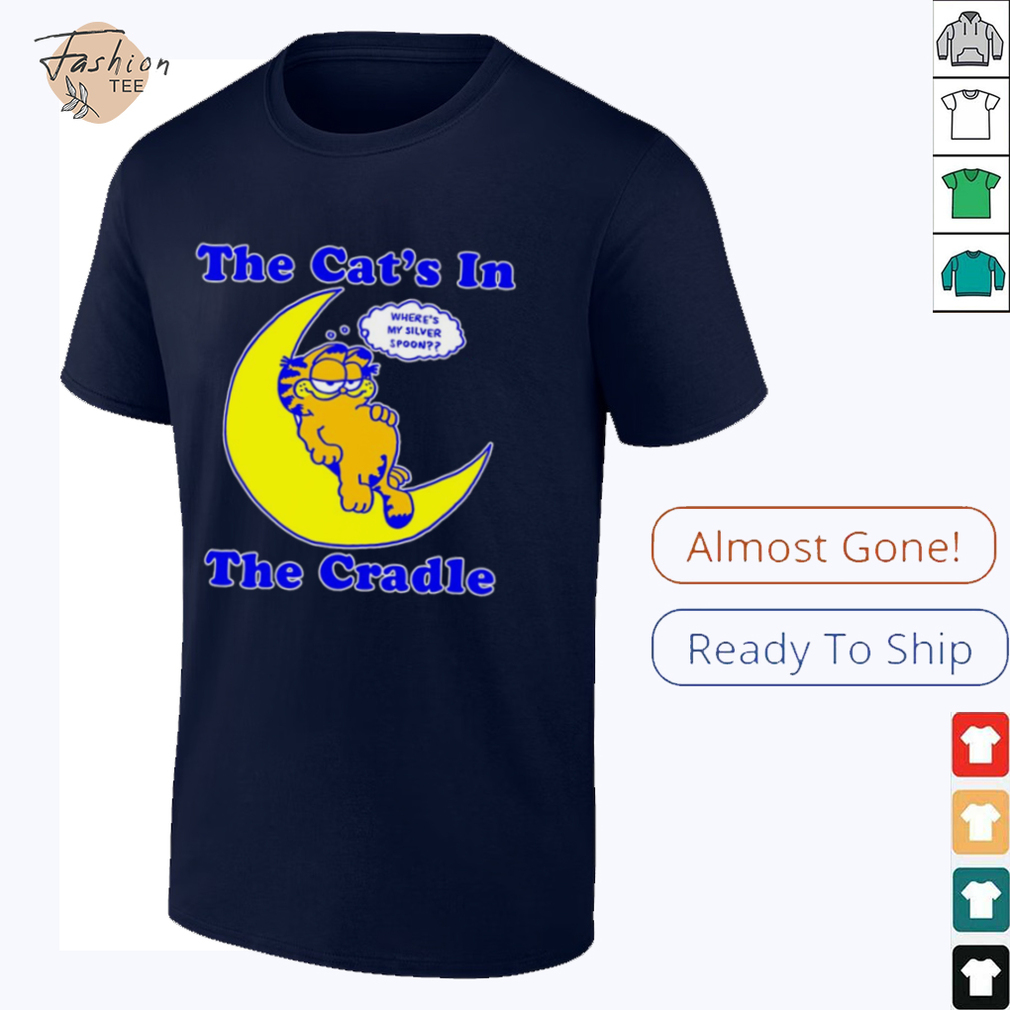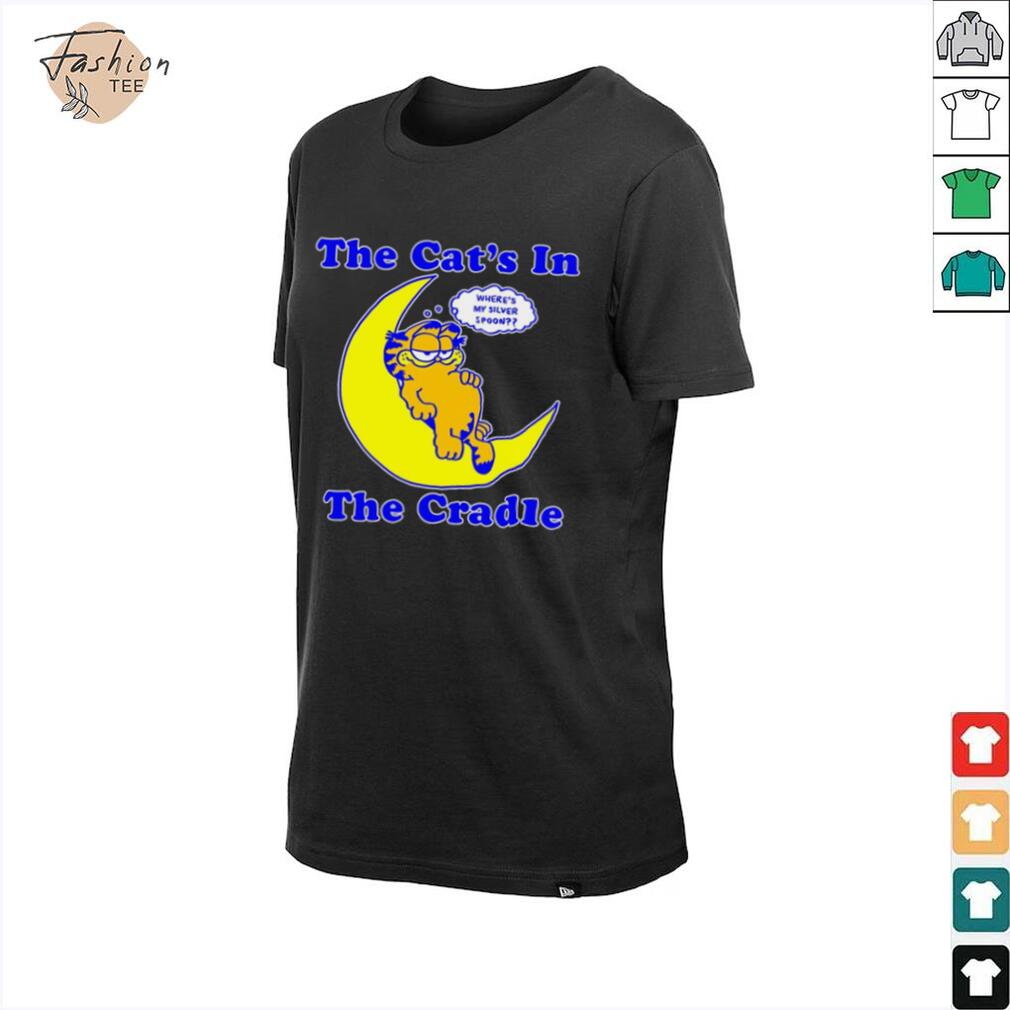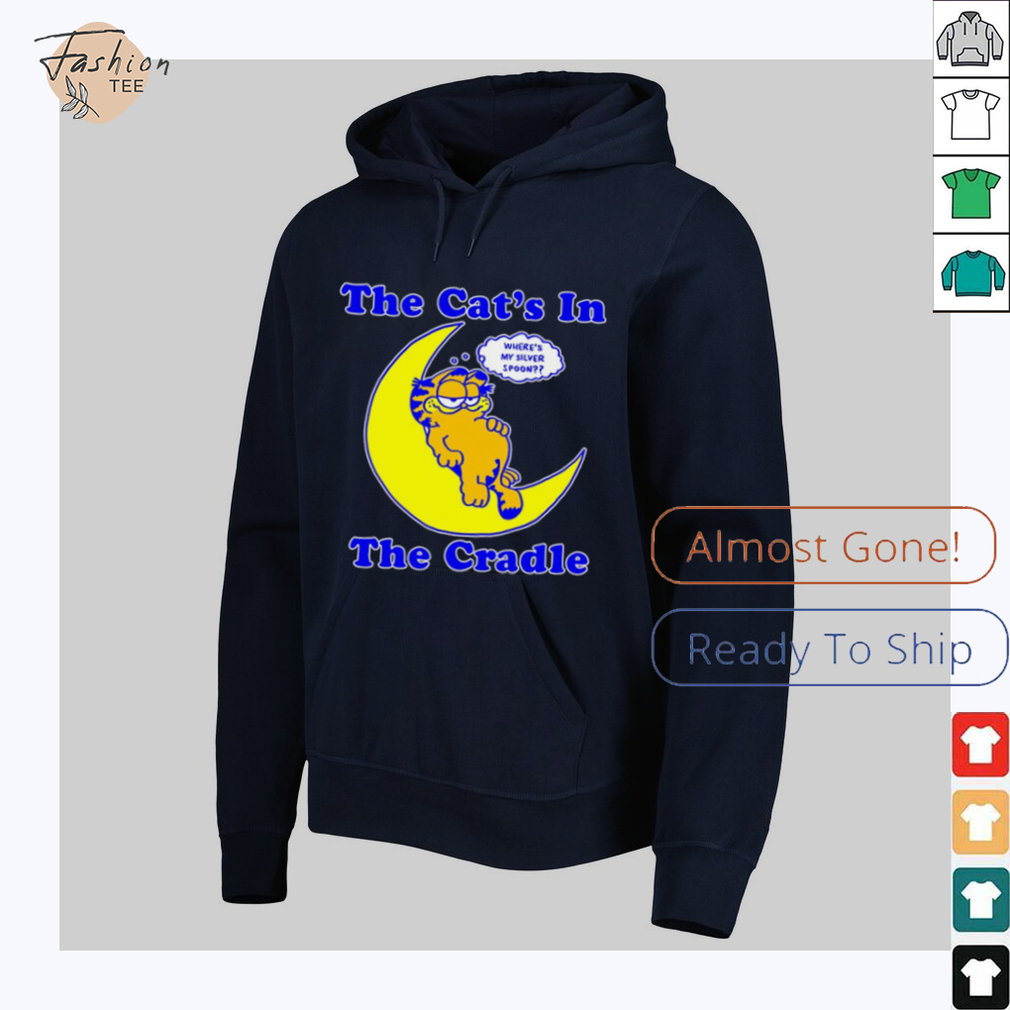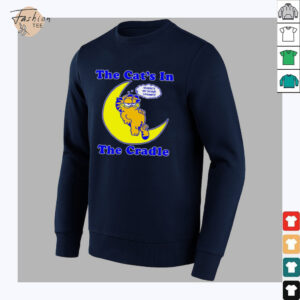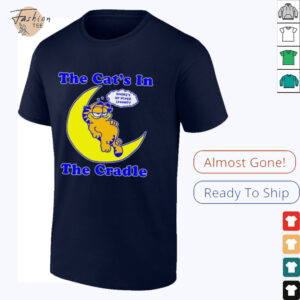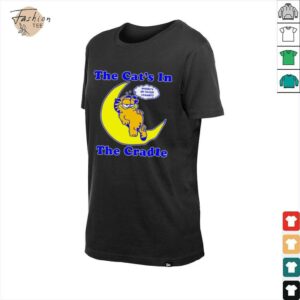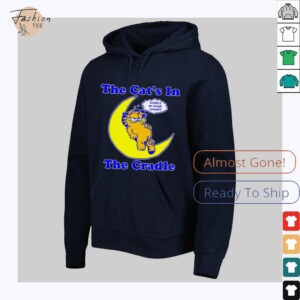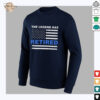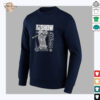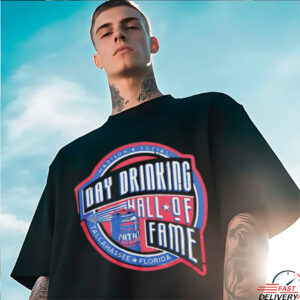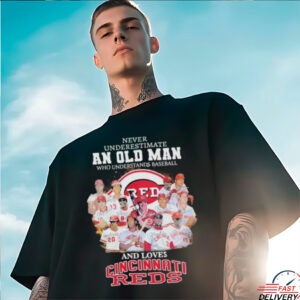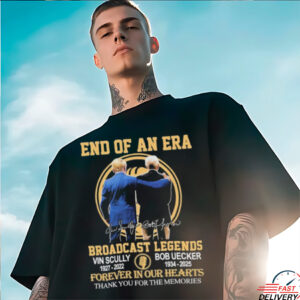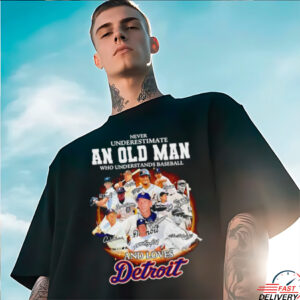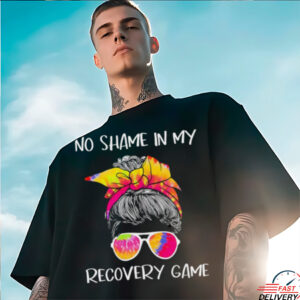“The Cat’s in the Cradle Shirt”: A Nod to Nostalgia and Life’s Fleeting Moments!
The “The Cat’s in the Cradle Shirt” is a deeply evocative and nostalgic piece of apparel that directly references the iconic folk-rock song “**Cat’s in the Cradle**” by Harry Chapin. This **T-shirt** is more than just a piece of band merchandise; it’s a wearable tribute to a timeless narrative about the passage of time, the changing roles within families, and the poignant realization of missed opportunities between parents and children. For anyone who has been moved by the song’s powerful message, or who appreciates its commentary on the bittersweet nature of life and parenthood, this **shirt** serves as a conversation starter and a subtle reminder of what truly matters. It’s designed to resonate with those who understand the song’s profound message, inviting reflection on their own relationships and the preciousness of time, making it an essential item for fans of classic folk music and thoughtful storytelling.
The prominent entity is the phrase “**The Cat’s in the Cradle**,” which is the title of a famous song. The semantic keywords include “**Cat**,” “**Cradle**,” and “**Shirt**” (the product type). The unique attribute is its direct reference to the renowned 1974 song by Harry Chapin, which became a #1 hit in the US in 1974 and a cultural touchstone (Billboard Hot 100, Rolling Stone). The song’s enduring popularity and its frequent use in media, documentaries, and as a cultural reference point provide strong social proof for its universal recognition and emotional impact. Its poignant theme of parental regret and generational cycles acts as a powerful viral trigger, connecting deeply with listeners across generations. “But what happens next when a song that perfectly captures the bittersweet essence of life’s passing moments and the complex dynamics of parent-child relationships is distilled onto a T-shirt, becoming a wearable symbol of reflection and empathy? It transforms into more than just apparel; it becomes a catalyst for profound thought, sparking conversations about personal priorities and the preciousness of time, turning a simple garment into a moving tribute to human connection.”
“The Cat’s in the Cradle”: A Timeless Narrative of Parenthood
Harry Chapin’s “**Cat’s in the Cradle**,” released in 1974, is far more than just a song; it’s a narrative masterpiece that has deeply resonated with generations of listeners. The lyrics tell the story of a father who is too busy to spend time with his son, only to find in his old age that his son has adopted the same distant behavior. This cyclical nature of life, and the poignant message about valuing time with loved ones, is what gives the song its enduring power (Songfacts, American Songwriter). The phrase “**Cat’s in the Cradle**” itself, along with the “little boy blue” reference in the song, evokes images of childhood innocence and the rapid passage of time. On this **T-shirt**, the phrase directly references this powerful narrative, serving as a subtle yet profound reminder to prioritize family and cherish fleeting moments. Its unique attribute lies in its ability to condense a complex emotional story into a simple, recognizable phrase, making it a powerful symbol for anyone reflecting on their own familial bonds.
The song’s consistent presence on “greatest hits” and “most influential songs” lists by music critics and publications (e.g., Rolling Stone’s “500 Greatest Songs of All Time” mentions similar impactful songs, various music history sites) and its frequent airplay on classic rock and folk radio stations provide strong social proof of its lasting impact. Harry Chapin’s dedication to humanitarian causes, often woven into his storytelling, adds further depth to his legacy. My personal commentary is that this song always makes me hug my kids a little tighter; it’s a beautiful, painful reminder to be present. “Here’s the part they didn’t tell you: While the song is widely attributed to Harry Chapin, the original poem was written by his wife, Sandra Chapin, making the deeply personal and reflective nature of its lyrics even more authentic and emotionally resonant, adding another layer to its profound impact.”
The Cradle and the Cat: Symbolism of Childhood and Parenthood
The imagery of “**the cradle**” and “**the cat**” in the song’s title holds significant symbolic weight, and thus, on this **T-shirt**. The “**cradle**” represents early childhood, innocence, and the initial phase of a child’s life where they are entirely dependent. It symbolizes the fleeting nature of infancy and the rapid growth that follows. The “**cat**” is less directly explained but can be interpreted in various ways – perhaps a child’s plaything, a pet, or simply an evocative, almost nursery-rhyme-like image that grounds the song in domestic life. Together, they symbolize the precious, unrepeatable moments of early parenthood and the passage of time as children grow. This unique attribute leverages universal symbols of childhood and domestic life to evoke a powerful emotional response. The shirt becomes a visual metaphor for the song’s core theme: how quickly children grow up and how easily precious moments can be missed. It’s a gentle, yet firm, reminder to be present.
Symbolism in music and poetry is widely analyzed in literary and music theory (various academic journals on lyrical analysis, cultural studies of popular songs). The song’s continued resonance with parents, as seen in countless online discussions and personal anecdotes shared in forums and social media, serves as powerful social proof of its impact. If you like to zoom in this way on shirts that use evocative imagery to convey a deeper message, this design perfectly captures the song’s lyrical depth. It’s a statement for those who appreciate meaningful art and its reflections on life. For another product that celebrates an iconic figure in a different field, but with a similar focus on cultural impact, consider the The Show Pete Alonso New York Mets MLB Baseball Cartoon Shirt, which highlights a beloved sports star.
The Shirt: A Wearable Reflection of Life’s Priorities
Wearing “The Cat’s in the Cradle Shirt” is a subtle yet profound way to express one’s appreciation for the song’s message and, by extension, their personal values regarding time, family, and priorities. The **T-shirt**, with its simple yet powerful graphic design, ensures that the reference is clear to those who know the song, sparking recognition and often, a shared moment of reflection. It serves as a reminder to the wearer and an unspoken message to others about the importance of being present in the lives of loved ones before it’s too late. This choice of medium transforms a profound lyrical message into a tangible, wearable statement, making it accessible for everyday wear. It’s more than just a piece of apparel; it’s a silent commitment to cherishing the moments, fostering deeper connections, and perhaps, breaking the cycle of regret portrayed in the song. My personal commentary is that this shirt feels like a gentle nudge from the universe to slow down and appreciate the now; it’s a beautiful thought to carry with you.
The continued sales and popularity of merchandise related to classic songs that carry strong emotional or philosophical messages (as seen on various music merchandise sites and fan forums) demonstrate the enduring appeal of such themes. Customer testimonials often highlight the personal connection they feel to these shirts due to the associated song’s meaning. “But what happens next when a song that brings tears to the eyes of millions is distilled onto a T-shirt, allowing individuals to carry its profound message as a daily reminder, influencing their interactions and priorities? It transforms into a powerful, understated symbol of the human experience, sparking introspection and shared understanding, turning a simple garment into a catalyst for living a more present and meaningful life.”
—
Beyond the Song: What Does “The Cat’s in the Cradle” Shirt Reveal About Generational Values and The Nature of Regret?
The “The Cat’s in the Cradle Shirt” is a poignant tribute to a powerful song. But beyond its musical reference, what does the enduring resonance of this specific narrative, captured on a shirt, reveal about changing generational values regarding work-life balance and family priorities, and how does it speak to the universal human experience of regret and the desire for connection?
This shirt prompts us to delve deeper into the societal impact of the song’s message. How has the song’s commentary on absent parenting evolved in its relevance as work cultures shift and digital distractions multiply? What role does such a widely recognized cultural artifact play in shaping our collective understanding of good parenting or fulfilling lives? Furthermore, by choosing to wear this message, are individuals not only expressing a personal connection to the song but also publicly committing to a different path than the one depicted, highlighting a conscious effort to break old patterns and prioritize presence? It truly makes you think about how a simple song, and a shirt that references it, can encapsulate so much about our shared human condition, our deepest regrets, and our enduring hopes for better connections, doesn’t it?
